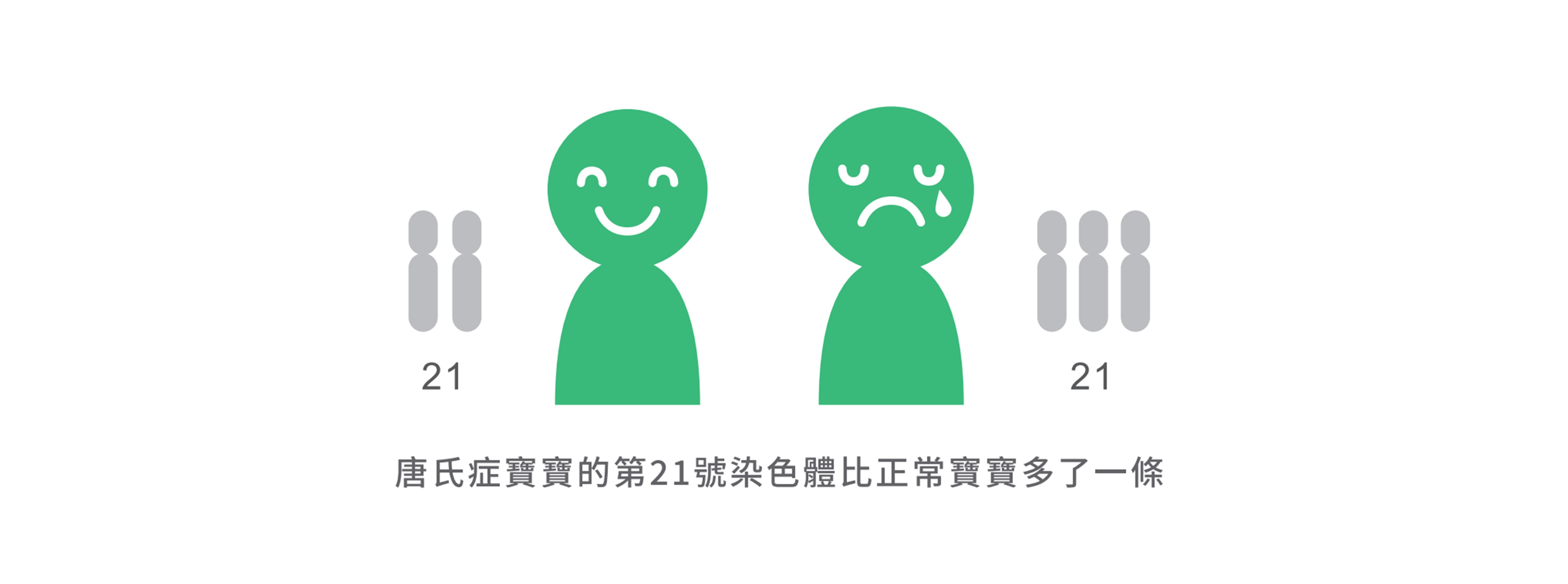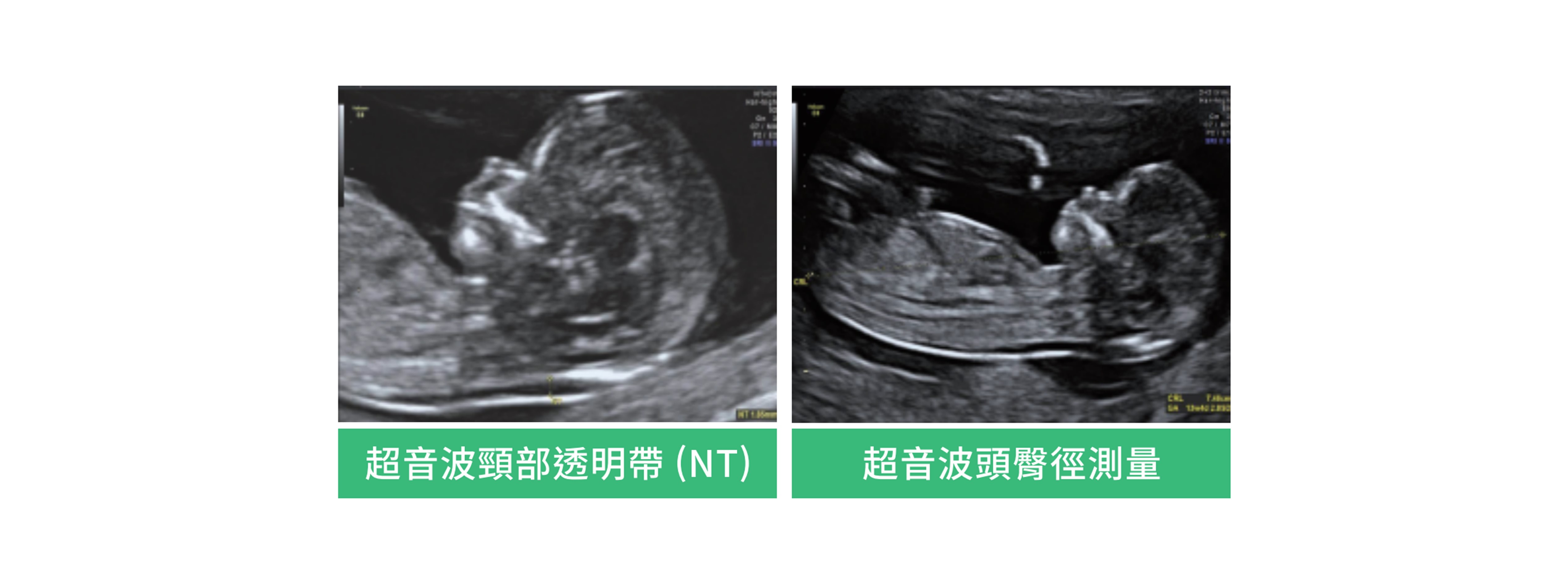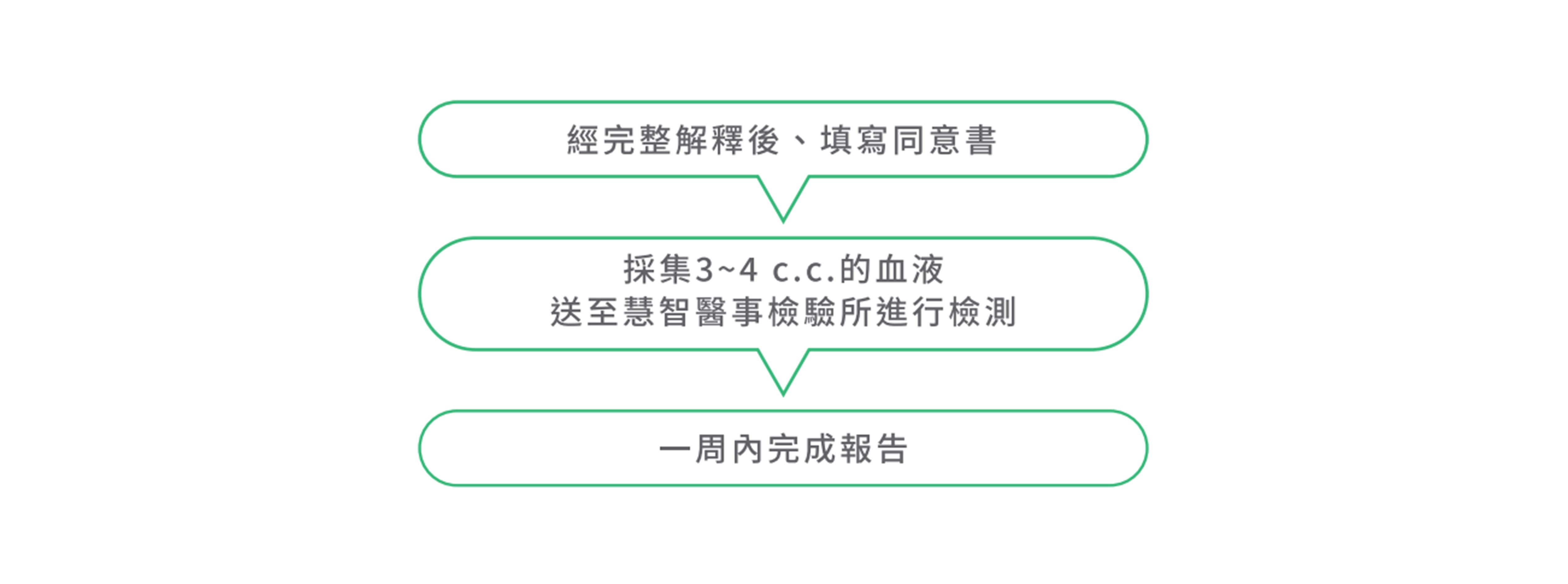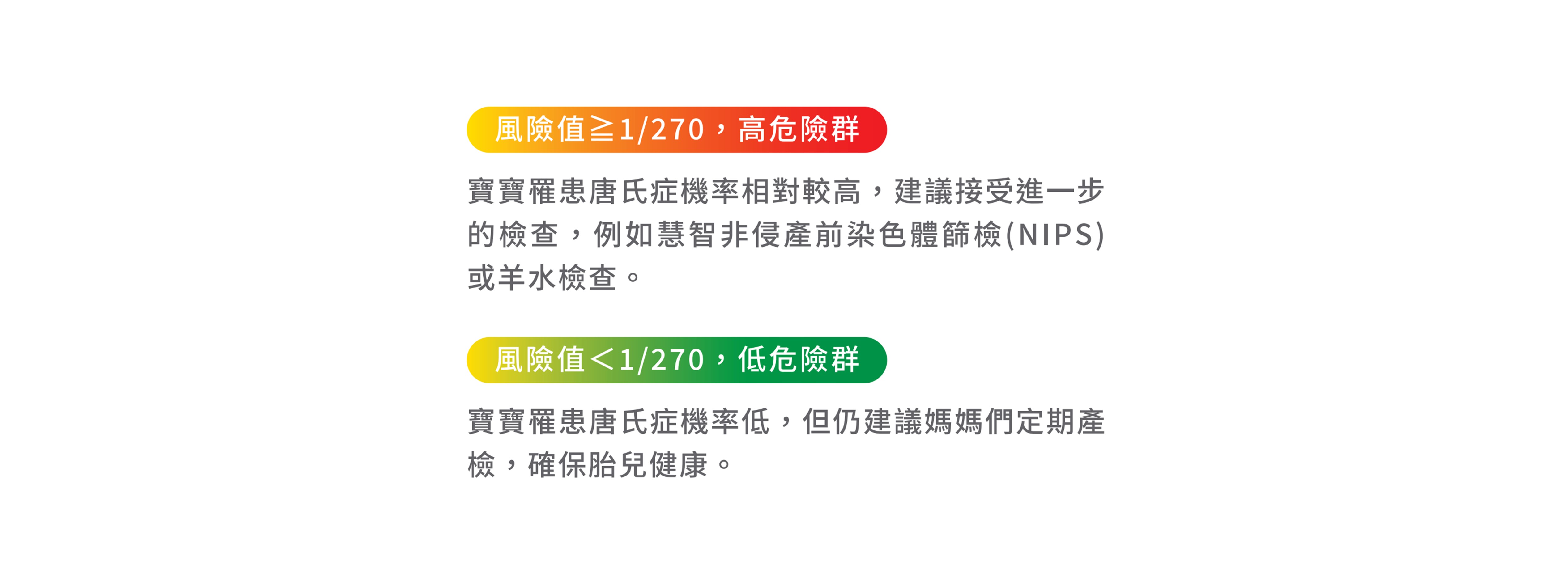母血唐氏症篩檢 (FDS)
服務介紹
「唐氏症」是最常見的染色體異常疾病,也是造成寶寶先天性智能障礙的主因之一。人類有23對染色體,染色體數目的多或少都可能會造成胎兒的異常,而唐氏症就是第21對染色體多了一條所造成的疾病,每800~1,000個新生兒中,就有1個可能是唐氏症寶寶。
唐氏症寶寶除了外表和常人不同外,可能有智力與身體結構發育遲緩、肌肉張力低、肌肉無力、先天性心臟病等症狀, 需由家人長期照顧。

■ 孕婦年紀與唐氏症
每個孕婦都有機會生下唐氏症寶寶,雖然唐氏症寶寶的發生率會隨著孕婦年齡的增加而遞增,但是年紀較輕的孕婦也有可能發生,只是機會較小,因此,生下唐氏症兒不是高齡產婦的專利,年輕婦女更不可因此而忽略產前檢查的重要性。
■ 第一孕期母血唐氏症篩檢+ 寶寶頸部透明帶
第一孕期是在媽媽懷孕8~13+6週時檢測。透過檢查媽媽血液中的PAPP-A註1和Free ß-hCG註2數值,再合併臨床數據(媽媽的年齡、病史、體重…等)估算出孕婦懷有唐氏症寶寶的風險。
母血唐氏症篩檢是搭配寶寶頭臀徑(C R L )量測、頸部透明帶(NT)量測、鼻骨有無、心跳數等超音波檢查(檢測時間11~13+6週)篩檢的準確率可達82-87%。

註1 PAPP-A:懷孕相關血漿蛋白A
註2 Free β-hCG:游離乙類絨毛膜促性腺激素
註3 愛德華氏症:三染色體18症,發生機率為1/8,000,患者的生存率極低,大概會有三分之二會胎死腹中,即使存活50%在兩個月內死亡,而90%在一年內死亡。
註4 巴陶氏症:三染色體13症,發生機率1/5,000,致死率極高,幾乎無法存活下來。患者有嚴重的外型畸形、心臟病、伴隨著腦部、顏面、腎臟、四肢、及腸子發育異常。
檢測說明
適用對象
建議所有懷孕女性都應做唐氏症篩檢,尤其是年輕孕婦,雖然染色體異常風險值較低,但人數卻佔了生育族群的大多數,因此,生下唐氏症兒不是高齡產婦的專利,年輕女性更不可因此而忽略產前檢查的重要性。所有懷孕女性不論年齡都應該依個人需求選擇唐氏症篩檢,以確保寶寶健康。
說明:國民健康署建議,若孕婦年齡大於34歲,染色體異常風險值較高,建議直接於16週以上進行羊膜穿刺檢查。若孕婦年齡小於34歲,染色體異常風險值較低,建議先以非侵入式的方式篩檢唐氏症,例如:非侵入性產前染色體篩檢、母血唐氏症篩檢。
檢測流程

其他說明
Q:前一胎寶寶沒有唐氏症,這一胎還需要做嗎?
A:唐氏症的發生,一般來說都不是藉由遺傳的方式,而是自發性的染色體變異,只有不到5%的唐氏症是經由遺傳的方式從爸爸或媽媽而來。因此強烈建議每一胎都要做唐氏症篩檢。
Q:做完檢查,報告說寶寶是低風險,那可以說寶寶不會有唐氏症的機會了?
Q:若寶寶檢查出來是高風險,怎麼辦?
A:唐氏症篩檢為一種風險評估,提供孕婦是否需要進一步的羊水檢查,篩檢結果並不表示胎兒一定有異常,請不要過度驚慌,後續檢查應以產檢醫師的意見為主。
慧智優勢


